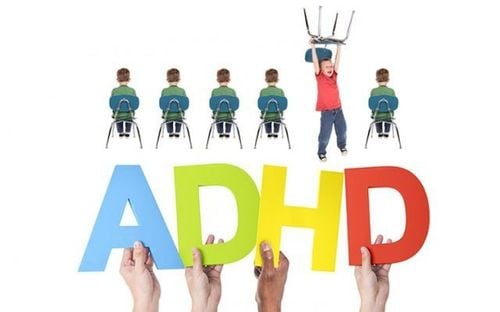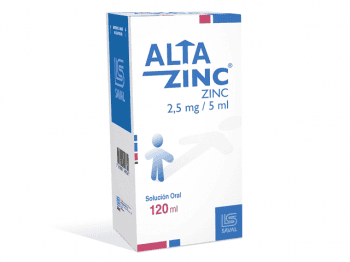This is an automatically translated article.
Attention-deficit hyperactivity disorder (ADHD) and Tourette's syndrome are two separate conditions, but they share certain similarities. The two conditions often begin at the same age, and in some cases, children can have both ADHD and Tourette's syndrome. However, they still exist a lot of differences, helping the doctor to accurately diagnose the disease, thereby giving the right treatment for the child.
1. Similarities Between Attention Deficit Hyperactivity Disorder and Tourette's Syndrome
Tourette's syndrome is a nervous system problem that can cause people to make sudden, repetitive, uncontrollable movements or sounds, also known as tic disorders. People with Tourette's syndrome often have symptoms such as blinking repeatedly, snorting, coughing, or grumbling. Some people may blurt out words they didn't mean to say, or have more complex actions such as shrugging, head movements, and repetitive facial expressions. These Tic disorders often occur several times a day.
For attention deficit hyperactivity disorder (ADHD), a condition that often occurs in children with some symptoms similar to Tourette's syndrome. These symptoms may include feeling restless, making random noises, inattention, impulsivity, and hyperactivity. Sometimes, children who are given ADHD medication (stimulant drugs) can develop irregular heartbeats, which usually go away on their own after a certain time.
Signs of both conditions tend to appear at the same age. Symptoms of ADHD can begin to appear between the ages of 3 and 6. Most children are diagnosed with attention deficit hyperactivity disorder (ADHD) while in elementary school. Tourette's syndrome usually begins when a child is about 7 years old.
Sometimes, some children can have both conditions at the same time. Statistics show that more than 60% of people with Tourette's syndrome may also have ADHD. In addition, they are also at risk for other related illnesses, such as obsessive-compulsive disorder (OCD), depression, or learning disorders.
Researchers have also found that there is a genetic link between Tourette's syndrome and other disorders such as OCD and ADHD. They share similar biological characteristics, thus making them more likely to occur at the same time.
2. What is the difference between Attention Deficit Hyperactivity Disorder (ADHD) and Tourette's Syndrome?
In general, the sound of Tourette's syndrome is different from the noises or movements that children with ADHD make. Children with tic disorders often make rapid, repetitive movements or sounds with similar facial expressions and shrug.
Usually, a child with ADHD will not have any of the same movements as with Tic disorder. Instead, children often show difficulty paying attention or concentrating. In addition, children may also be easily distracted or have difficulty staying organized and goal setting in their studies/tasks.
Symptoms of Tourette's syndrome usually develop most strongly during adolescence or early adulthood (occurring less frequently and sometimes disappearing altogether). Meanwhile, symptoms of attention deficit hyperactivity disorder (ADHD) often persist into adulthood.
In addition, Tourette's syndrome is less common than ADHD. According to statistics from the CDC, only about 138,000 children in the United States have been diagnosed with Tourette's syndrome, while about 6.4 million children in this country have ADHD.
Many researchers think that genetic factors have a lot to do with both conditions. However, other factors that can lead to ADHD include low birth weight babies, women who drink or smoke during pregnancy, or children with brain injuries.

Âm thanh của hội chứng Tourette’s khác với những tiếng động hoặc chuyển động mà trẻ mắc tăng động giảm chú ý tạo ra
3. Diagnosis and Treatment of ADHD and Tourette's Syndrome
Through the exam, the specialist will tell you whether your child's symptoms will be of Tourette's syndrome, attention deficit hyperactivity disorder (ADHD), both, or a medical condition. other potential health.
In general, there is no single test that can diagnose ADHD and Tourette's syndrome. The doctor will ask the parents to exchange specific information about when the noticeable symptoms began to appear in the child. In addition, the child may also be taken to have blood tests or medical tests to find out the cause or something else that leads to these conditions.
Treatment for children with ADHD often includes a combination of medication and behavioral therapy. Stimulants are commonly prescribed by doctors for children with this condition, but there are also other medications such as guanfacine, atomoxetine, antidepressants, and clonidine. Behavioral therapy for attention deficit hyperactivity disorder (ADHD) helps children learn how to build positive behaviors instead of negative ones caused by the disease.
If your child has Tourette's syndrome, the doctor may recommend medication to treat the condition. Some medications for this condition may include medications for ADHD, antidepressants, anticonvulsants, antipsychotics that block the brain chemical dopamine, and Botox injections. Although medications do not completely eliminate the sensations of Tic disorders, they can help effectively control the disease.
Alternatively, children with Tourette's syndrome can also try behavioral therapy. In it, children will receive habit reversal training (HRT), which helps children learn to identify signs of tic disorder about to occur and then learn a new behavior to replace.
In a school where your child has both attention deficit hyperactivity disorder (ADHD) and Tourette's syndrome, your doctor may prioritize treatment for ADHD. This can help reduce stress, improve attention, and manage tic disorders in children.
Pediatrics Department at Vinmec is one of the few multi-specialty hospitals with a full range of doctors specializing in neurology, cardiology, gastroenterology, nutrition, psychology, endocrinology, hepatology, helping to handle it quickly and in a timely manner. when diseases are discovered during the examination. As a key area of Vinmec Medical system, Pediatrics Department always brings satisfaction to customers and is highly appreciated by industry experts with:
Gathering a team of leading pediatricians: including leading experts with high professional qualifications (professors, associate professors, doctorates, masters), experienced, worked at major hospitals such as Bach Mai, 108.. Doctors All are well-trained, professional, with a mind - range, understanding young psychology. In addition to domestic pediatric specialists, the Department of Pediatrics also has the participation of foreign experts (Japan, Singapore, Australia, USA) who are always pioneers in applying the latest and most effective treatment regimens. . Comprehensive services: In the field of Pediatrics, Vinmec provides a series of continuous medical examination and treatment services from Newborn to Pediatric and Vaccine,... according to international standards to help parents take care of their baby's health from birth to childhood. from birth to adulthood Specialized techniques: Vinmec has successfully deployed many specialized techniques to make the treatment of difficult diseases in Pediatrics more effective: neurosurgery - skull surgery, stem cell transplantation. blood in cancer treatment. Professional care: In addition to understanding children's psychology, Vinmec also pays special attention to the children's play space, helping them to have fun and get used to the hospital's environment, cooperate in treatment, improve the efficiency of medical treatment.
Please dial HOTLINE for more information or register for an appointment HERE. Download MyVinmec app to make appointments faster and to manage your bookings easily.
Reference source: webmd.com













